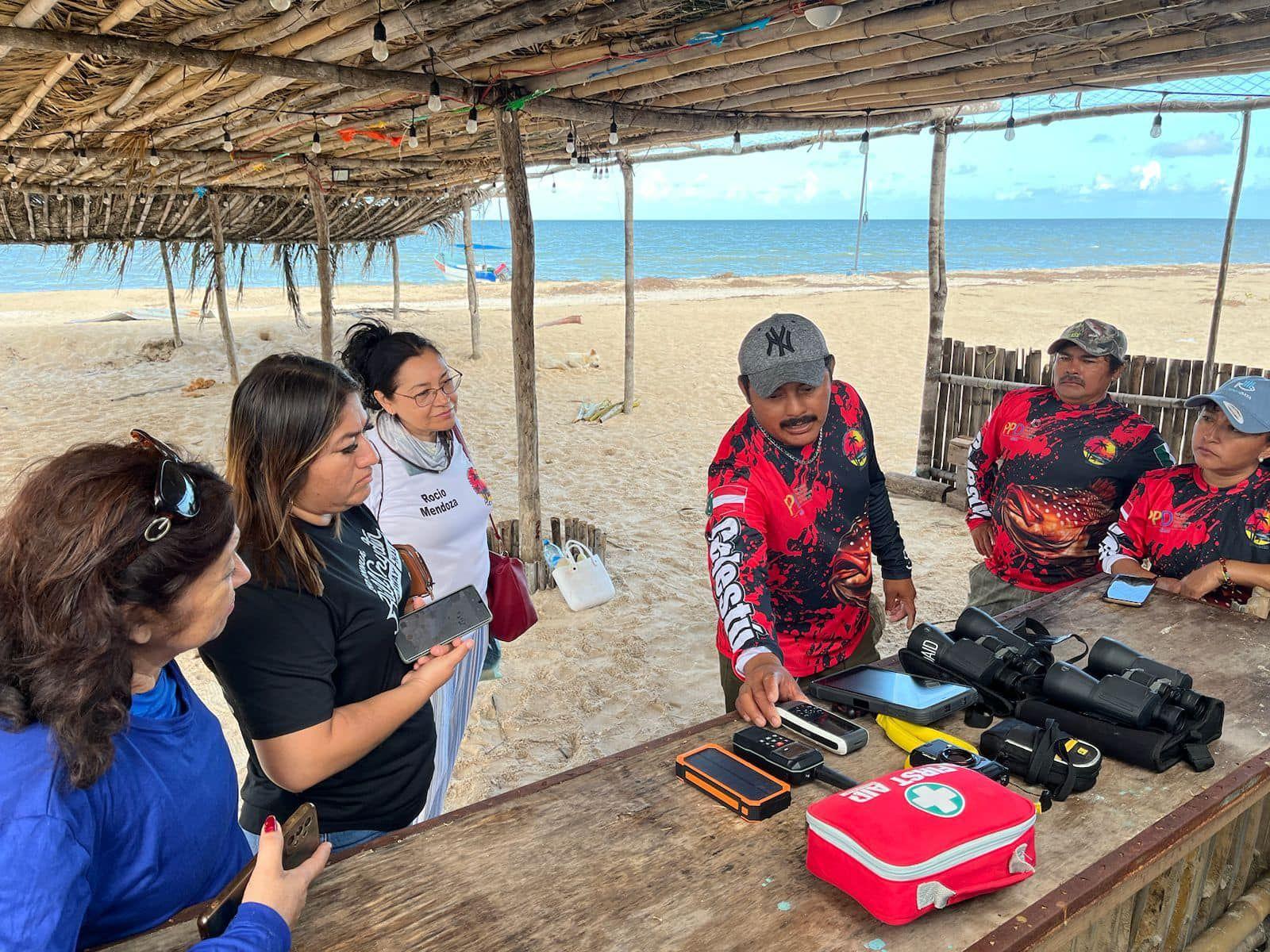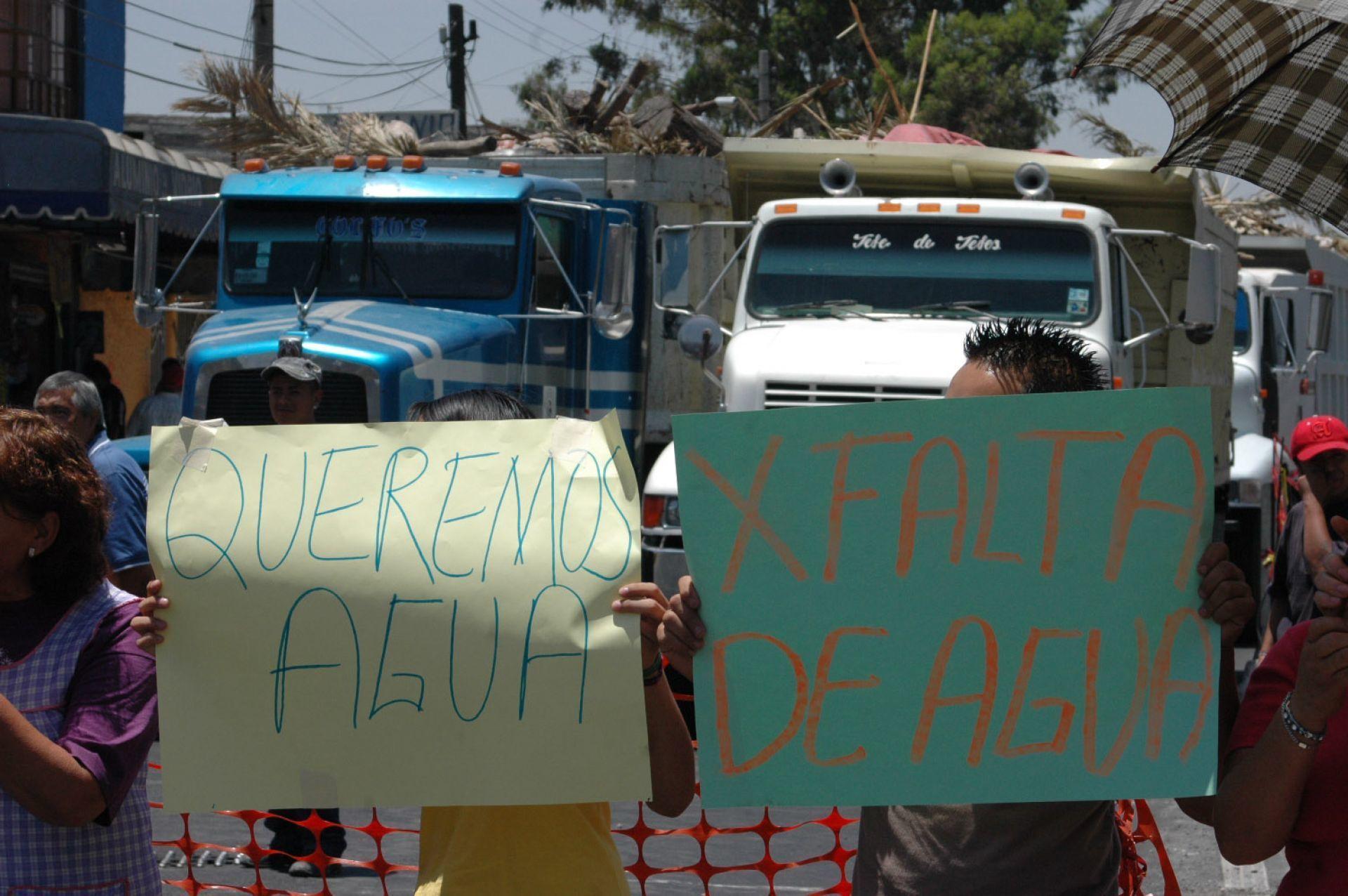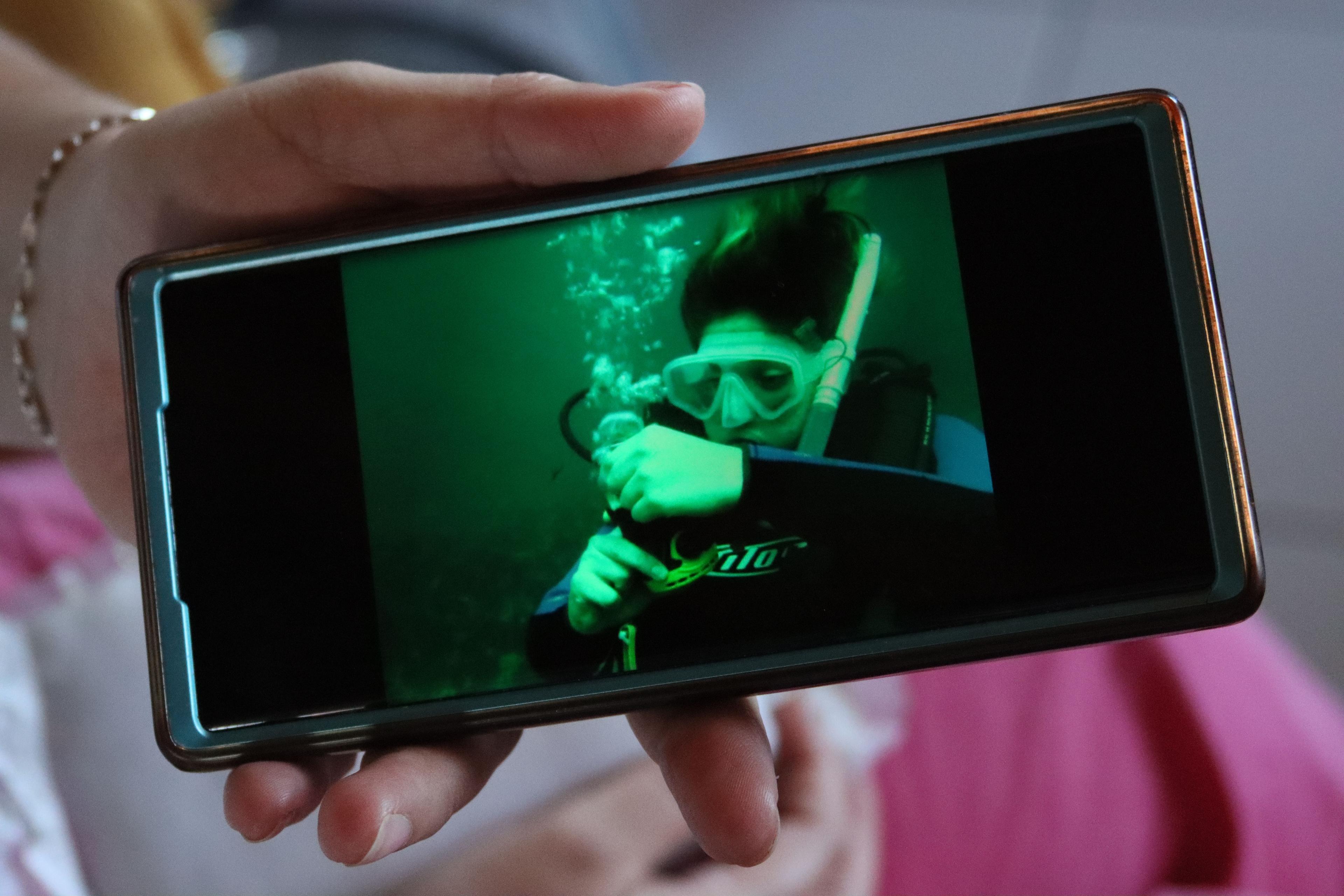Clarita Alvarado says she was a mother when she began working defrosting, cleaning and filleting fish. At her side, Andrea, her older sister, who was pregnant twice while doing the same job, remains silent when asked about her early years in motherhood.
“He's embarrassed to talk about it,” Clarita says instead. “She did have her two pregnancies there in the processing plant. We work without social security all the time.”
“But during your pregnancy, were you given weeks of disability before or after giving birth?” , he is asked. Once again Clarita answers: “No, nothing, my sister went out, gave birth and went back to work. They didn't give him anything.”
Clarita, 44, and Andrea, 50, are originally from Golfo de Santa Clara, a fishing town in the municipality of San Luis Colorado, north of Sonora. For more than 20 years, they worked at one of four fish and seafood processing plants. At the same time, the participation of women in Sonoran fishing increased, mainly, in product processing activities, where they are known as “steaks”.
Unlike the Alvarado sisters, Miriam Pérez, president of the Gulf Workers Cooperative Society, had two of her five children when she was already filleting fish. In her case, she worked until the seventh month of pregnancy, which is the time offered by the maternity policy in Mexico, but she didn't do it because the law so established, since no one has social security, but because she organized it that way with her colleagues.
“When a colleague becomes pregnant, we consider her among the others so as not to leave her with excessive work. On the contrary, support it, coordinate and pay us in equal parts,” explains Miriam, whose cooperative emerged 12 years ago with the purpose of making visible the role of steak women and, as president, she legally manages and represents them, establishing general management policies.
Given the lack of access to social security throughout the Mexican fishing sector, the experience of motherhood or diseases related to reproductive health is marked by the care networks established by women in their work space.
The way in which these networks are woven is conditioned by the work space. In fishing cooperatives, work is done for seasons of capture, which allows women to seek other forms of economic support and adjust their work when a partner is pregnant, absent due to childbirth or breastfeeding. Whereas in processing plants, women adapt to seven- or eight-hour workdays and decisions are made by the boss on duty.
“We were always very forgotten, honestly, and there were more than 40 or so women working at the plant for many years. There we became old and without paying anything. We're really fucked up,” Clarita says.

Being a mother near the sea
In Mexico, there are around 22,000 women in fishing and aquaculture, according to the National Fisheries and Aquaculture Commission (Conapesca). Many of them work outside the law and have no record of their working conditions.
“The topic of motherhood seems to me to be very advanced (to document), because simply the issue of social security is a need that is not covered for people in the Mexican fishing sector,” says Neyra Solano, gender specialist at the organization Community and Biodiversity (COBI) A.C.
Regarding the lack of access to health and social security, international organizations, such as FAO, have documented that there is a greater lack of access to rights in smaller-scale or coastal fishing. Often there are only informal or self-employment agreements, they lack appropriate employment contracts and they do not have access to social security, including pensions.
With regard to motherhood, information on the experiences of these women is scarce. Recently, the Tracing the Course of Fisheries initiative recommended the inclusion of strategies such as improving access to health and promoting labor protection policies to achieve solutions to the challenges faced by pregnant women in the sector.
In Mexico, the Federal Labor Law specifies that working mothers will have access to a six-week break before and after giving birth. The subsequent period could be extended to eight weeks if the children were born with some type of disability or require medical attention.
There is also talk of two extraordinary breaks per day, of half an hour each, for six months for breastfeeding. This must be done “in a suitable and hygienic place designated by the company, or, when this is not possible, after agreeing with the employer, your working day will be reduced by one hour”.

In the southern part of Sonora, in the region of the Yaqui community, Brenda Navarro Corona had to work while breastfeeding.
“It's very difficult to be working and having a small baby. It's very difficult. My breasts filled with milk and what I did was take a breast pump to the office, empty it into a bottle and send it home because I live nearby,” says Brenda.
Although Yaqui women have not been included in the list of fishermen and do not have social security, the Yaqui Communities Cooperative provides them with a fixed salary for their work, seven-hour days and during pregnancies they are granted 15 days before giving birth and can be reinstated until the baby is two months old.
As the current manager of the processing plant in the Yaqui community, Brenda is responsible for coordinating her colleagues when they are pregnant, looking for substitutes during the time of absence and reviewing the payment of salaries during this period.
For many precarious women, working at sea provides better conditions than maquiladora or the countryside where they could also find employment with 10-hour days and minimum wages.
The study Motherhood in Mexican Legislation: A View from Women's Labor Rights, published by researchers from the Autonomous University of Tamaulipas, evaluates Mexican laws that protect motherhood over the past twenty years, which highlights that periods of rest during the postpartum period are getting longer, but “despite these advances, sometimes it may not be enough to allow women's adequate growth in the work context and in their fulfillment as a mother”, the study points out.

A health problem
When Miriam Pérez gave birth to her son, she took the weeks off after giving birth, left her son with family members for her care, and returned to work. That fishing season divided her day between going home to nurse her son and returning to filleting. The following seasons she carried it with her, as do other women in the cooperative.
“I keep a video where we are all and there our children are...”, she says.
Miriam says that she proposed at the meeting of the fishing cooperative that they register with social security, however, the decision has not been taken for different reasons related to delays during the coronavirus pandemic and, subsequently, the lack of money, and even, the lack of trust in the health sector.
“We didn't do it (the registration in social security) due to lack of resources and funding. Because we went to the insurance and it was like 800 pesos to register each person, yes the cost is high, but I told the ladies to think about a future benefit. In the end, we didn't cooperate, we didn't pay and we couldn't complete the process,” says Miriam, who despite being in the presidency, requires the support of her colleagues for these contributions.
Unlike a company, where management decisions are made by the boss, in a fishing cooperative its members are partners and owners at the same time. Every member has a say in decisions.
When a woman is pregnant in the Gulf of Santa Clara, she has to travel to San Luis Colorado, the municipal seat located 97 kilometers away, to receive medical attention. In the town they only have one clinic with a couple of doctors who support them by counting dilation when they are about to go into labor. There are also private doctors, but most find it difficult to afford their services.
As president of the Gulf Workers Cooperative Society, Miriam says that motherhood is an issue with which “we have to make noise”.
“What is needed is to implement appropriate public policies for a decent health sector for pregnant women, with tools, with studies,” he concludes.






Comentarios (0)